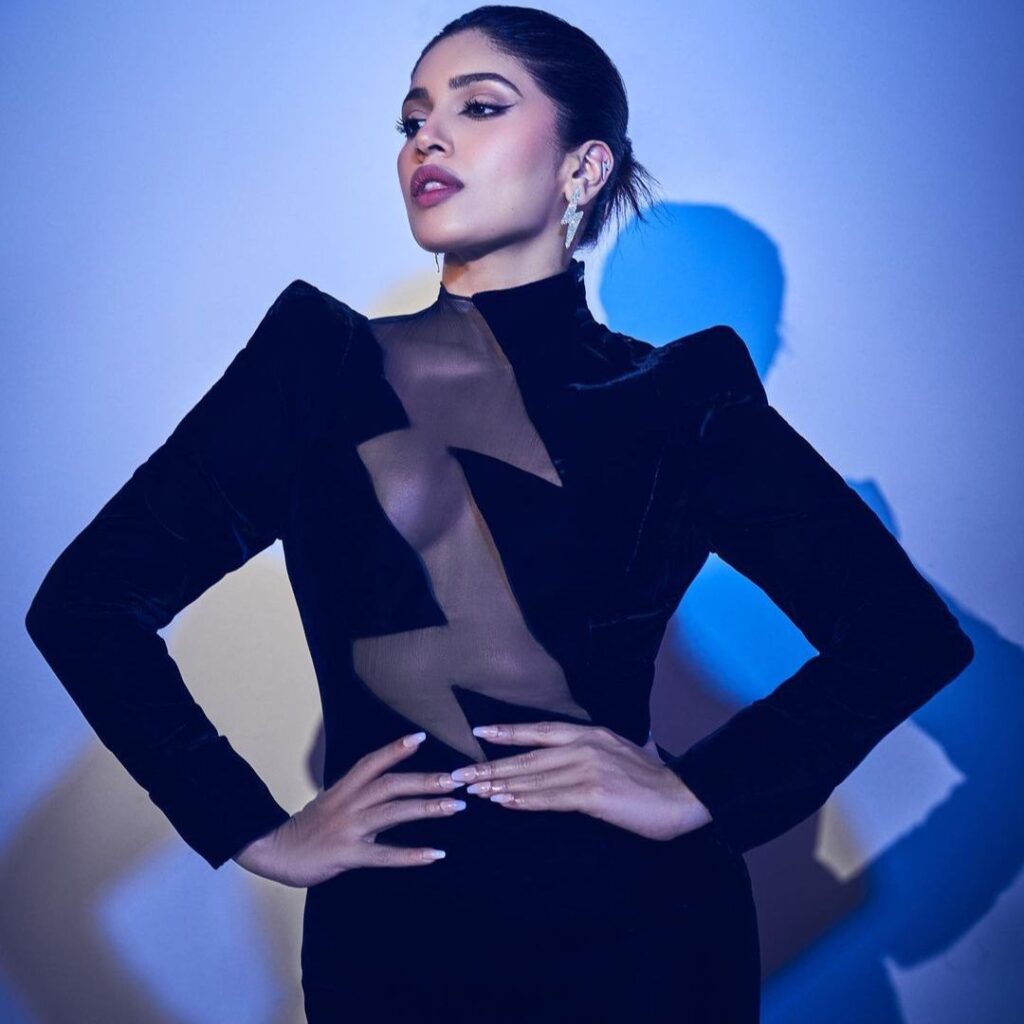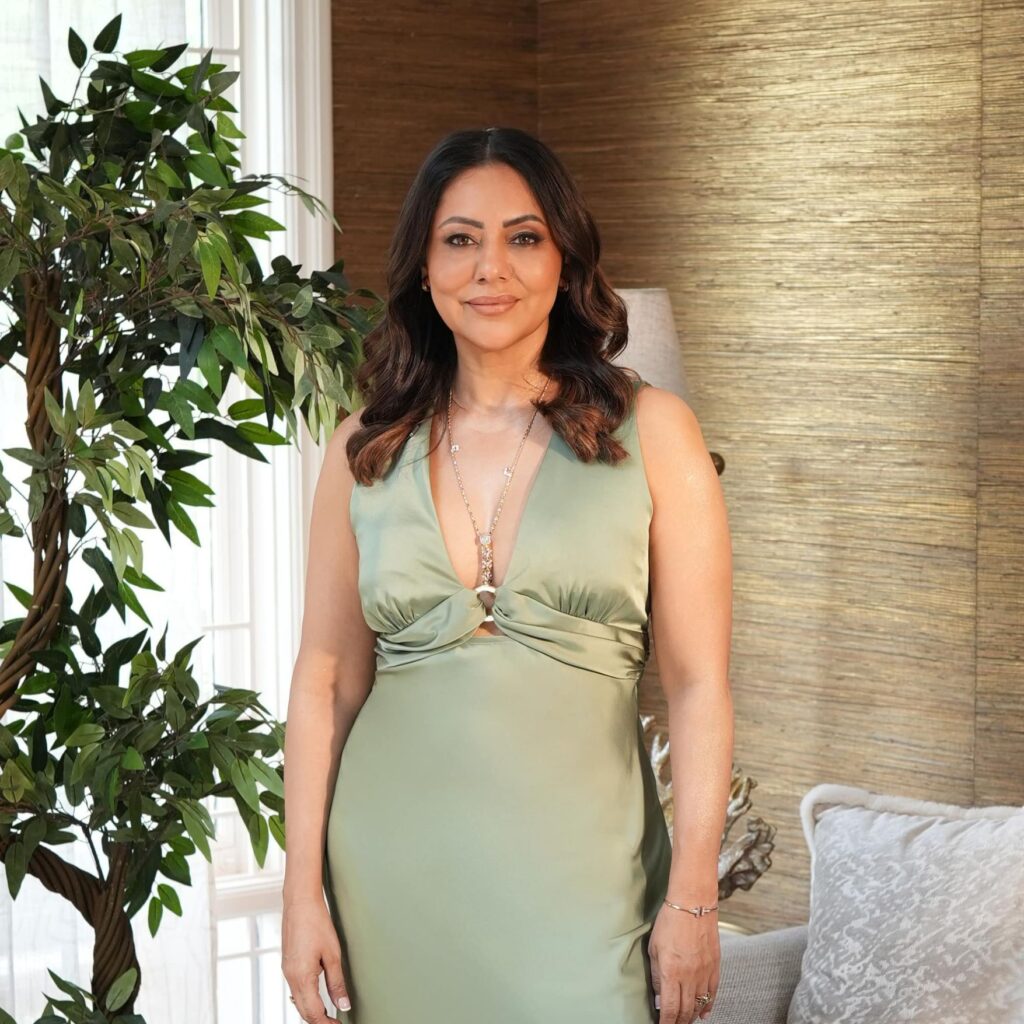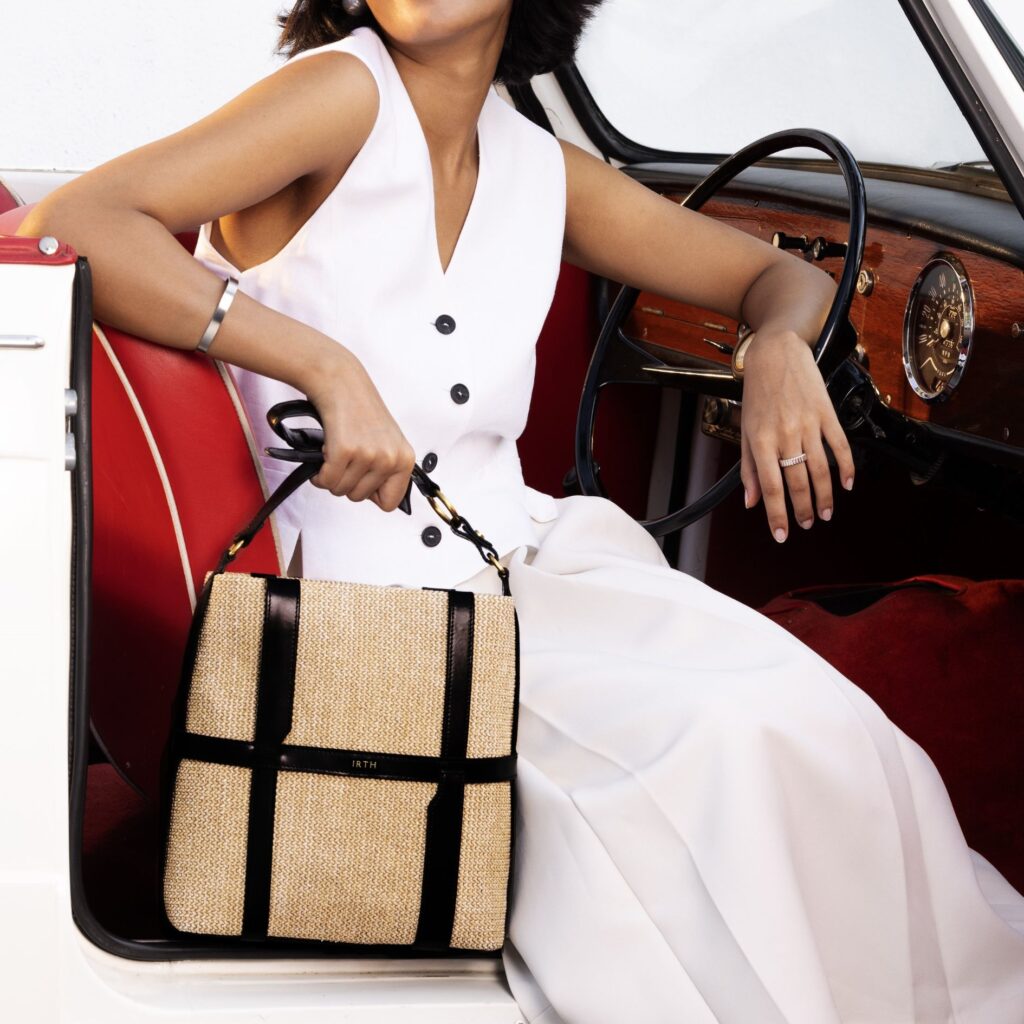The actor and climate change activist in an exclusive conversation with The Word.
- Fashion
Bhumi Pednekar On Her Love for Vintage Fashion, Shopping Responsibly, and Being Her Authentic Self
- ByNandini Bhalla

Bhumi Pednekar [Courtesy: Instagram]
The Word.: Tell us how your style has evolved over the years.
Bhumi Pednekar: “It has certainly come a long way. I think I always had the aesthetic, I just didn’t know how to express it. But, over the years, I have educated myself. Yes, some people are inherently stylish, but many a time, you can grow into being a stylish person. I have grown into that person, and I don’t mind admitting that. And it has come from learning about the art of fashion.
Fashion is not about trying to be somebody else, it is about being your most authentic self. And that’s why it’s been a journey for me. I think, in the beginning, I was always trying to be a version of something that’s already been done. Now I am completely true to who I am—I like to wear pieces that bring me joy, suit my body, and make me feel comfortable and confident. I think I have also changed tremendously because I have become a lot bolder with my fashion choices. So it might go wrong, but it’s okay. And I feel as sexy on the inside as I look on the outside… Right now, I am the truest, purest, most authentic version of myself, and it is because I have fully embraced myself.”
TW.: Tell us about your collaboration with Saritoria.
BP: “I strongly believe in reusing, recycling, and upcycling, and I like to do everything that I can to make fashion more sustainable. I was aware of the work Saritoria has been doing, and I thought that a closet cleanse was a great idea. There are so many international platforms that sell pre-loved items, but, in India, there aren’t that many—especially when it comes to luxury. As someone who is obsessed with fashion, I was on the lookout for a good platform for pre-loved luxury items in India.
Being sustainable is important to me, and it’s a major reason why I opt for pre-loved items. So I decided to share a few pieces from my wardrobe—that have either never been worn, or worn just once—with Saritoria. I felt if these pieces could be put to better use, and if they can be loved by somebody else, why not? So I am glad I could collaborate with them.”
Instagram will load in the frontend.
TW.: Tell us what was going through your mind when you were cleaning out your closet…how did you decide what to keep and what to toss?
BP: “I am a bit of a hoarder, and it is very tough for me to part with things. So when I went through this exercise, it was quite liberating. It’s so important to declutter…it helps us identify how much we have grown and evolved, and how our choices have changed. So while going through my closet, I asked myself, ‘Would I wear this immediately?’ or, ‘I have worn this, but is it something I might wear again?’. So, to be honest, it was a process and it took me like a couple of days to declutter.”
TW.: Would you like to share your beliefs on how one should shop to build a wardrobe that will last you longer?
BP: “Overconsumption is a devil that we all need to kind of get rid of. The idea of buying in bulk is terrible…it is bad for the planet and our finances. I have evolved as a shopper over the years, and, now, I buy a lot of classic pieces that I can mix and match or layer with other items. So you need to have a vision—for instance, if it is a skirt, ask yourself if you will be able to wear it in different ways. It is important to build a wardrobe with classic, simple silhouettes to get maximum wear out of your garments. Get a white coat or blazer, a long black skirt, a classic LBD, a chic jacket, and accessories, and with these pieces alone, you can do so much. I love accessories as they allow me to wear the same outfit in various ways. Like a corset belt worn over a classic shirt completely changes the vibe, right? So I do that very often. The idea is to be thoughtful and understand how you can reuse the same garment, without it becoming boring.”
TW.: When you look at your closet, are there any pieces that you have worn over and over?
BP: “Absolutely. In fact, there are many! In terms of couture pieces, there is a black [Alexandre] Vauthier gown that I bought seven years ago—it was one of my first couture purchases, actually—and I have worn it about six or seven times. The beauty of Indian culture is that we truly believe in recycling and reusing. I have seen it within my family, where clothes that we have grown out of would be passed on to our younger cousins—and the same happened with me as well. And it is such a beautiful practice. Even my sister [Samiksha Pednekar] keeps on borrowing my clothes—though we hate sharing our wardrobe, I think it is also something that makes our bond stronger. I often wear my mother’s saris, and I have even upcycled one into a salwar kameez. So I am constantly playing around with my clothes.”
TW.: Do you feel that social media encourages us to not repeat garments?
BP: “It is okay to repeat clothes! I would think that one is uncool if they aren’t doing that. And you’re right, there is a lot of pressure. But I would like to use this platform to let all the women know that while you might see us in a different set of clothes every day, a lot of them are borrowed. Even the ones that we wear on holidays are sometimes borrowed, you know. So don’t get influenced by the volume of options that come your way. We wear these garments and return them to the designers or brands. Today, you see a lot of Indian celebrities repeat their outfits, and that’s so important.
I would also recommend that you thrift clothes or try vintage shops—my love for fashion is very deep, and it’s only growing, so buying vintage pieces brings me so much joy. I have so many vintage pieces. I also wore this beautiful Mugler, I think, and it has lightning detail in the middle—I have a mini collection of vintage Mugler pieces. So vintage shopping is a lot of fun because you might just get lucky and get rare, unique pieces at a great price. People think that vintage items are expensive, but it’s not the case every time.”

TW.: Do you think that more people in the public eye need to be honest about wearing ‘borrowed’ clothes…or about wearing vintage or thrifted items?
BP: “I feel like there is a dire need to change the narrative. We can’t be that generation, or we can’t be people in places of power, or idols that people look up to if we aren’t empathetic about what we are creating around us. Everything that we stand for has a ripple effect. So if a lot of people are honest about reusing clothes, it’ll encourage others as well.
The fashion industry is a very large contributor to environmental pollution, so it is important to change our consumption habits. And consumption habits change when there is a cultural shift—and we are the culture. We are the people that the younger generations look up to. And it isn’t just about being kind to the planet, it has a lot to do with mental health as well. You can’t live an aspirational life, and not inspire people to do the right thing. When I was a young actor, I was under tremendous pressure. My mother was my stylist and darjee [tailor], and we were upcycling stuff until I had professional help. And if you are someone who loves fashion but doesn’t have financial independence because you’re young, that can put you under tremendous pressure. So it’s our collective duty to change that narrative.”
TW.: Do you think it’s time to bring back the semi-lost art of repairing clothes and shoes and bags?
BP: “You know, all through my teenage years until my early 20s, I used to rafu [darn] clothes… Rafu is such a beautiful word that I have not heard in so long. Sustainability is going back a generation and living the way people lived then with the strength of how developed our technology is today. If we just start living the way just the way our mothers lived, you know, we would contribute positively towards not harming our planet and environment. Repairing things is a very big part of upcycling and reusing things.”
TW.: Bhumi, what would you tell young boys and girls, who are still opposed to the idea of owning pre-loved items?
BP: “I would tell them that if you truly want to be a ‘cool person’, you have to change your outlook. If you truly want to be with the times, pre-loved fashion is the way to be.”
READ MORE
- Hyderabad Welcomes a Luxurious, New Residential Community With Signature Estates
- The Word. and Bumble Celebrated An Evening Of Scent, Sparks, and Mutual Connections
- How The Bicester Collection Quietly Became the Fashion Insider’s Best-Kept Shopping Secret
- Gauri Khan, On Her New Experience Centre In Delhi, Her Favourite Spot At Home, and Great Décor Advice
- With IRTH’s New Store in Noida, The Brands Adds To Its Joyful Delights





